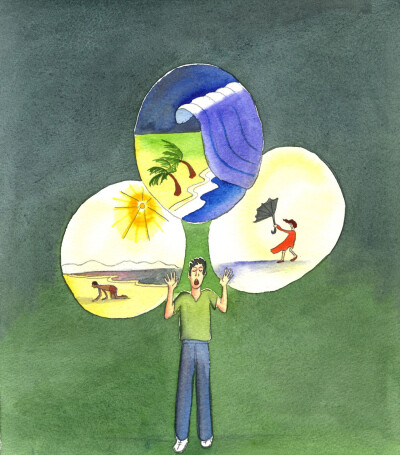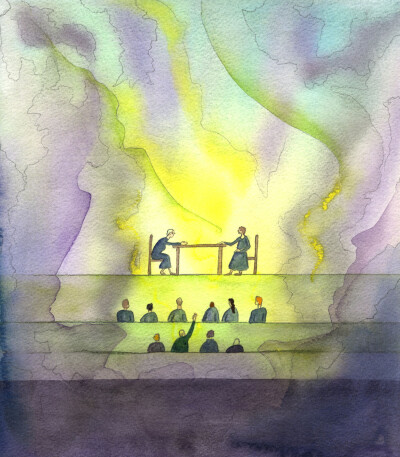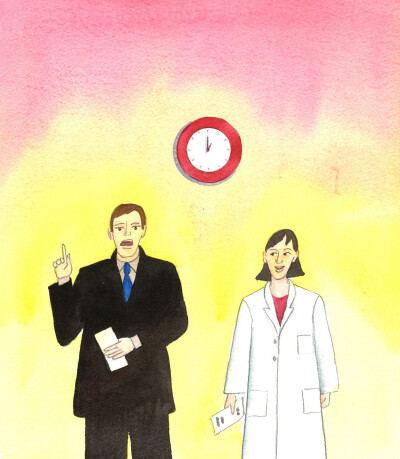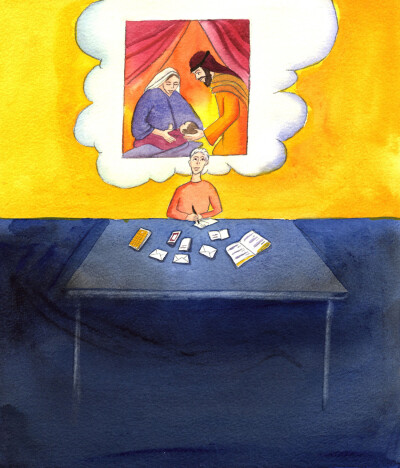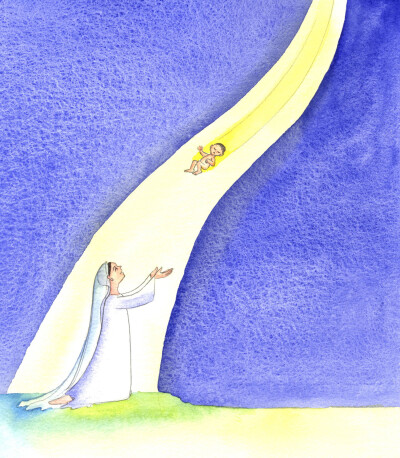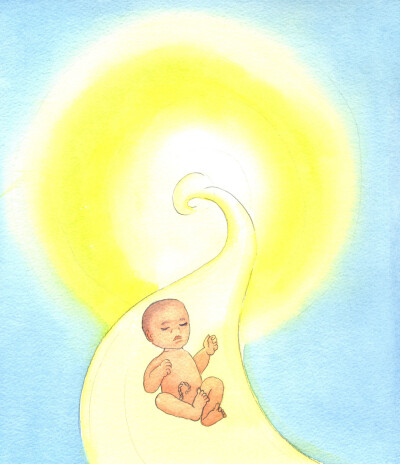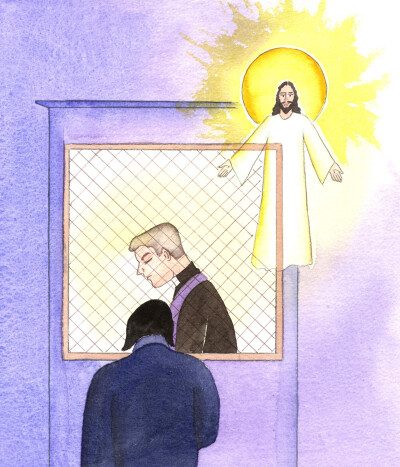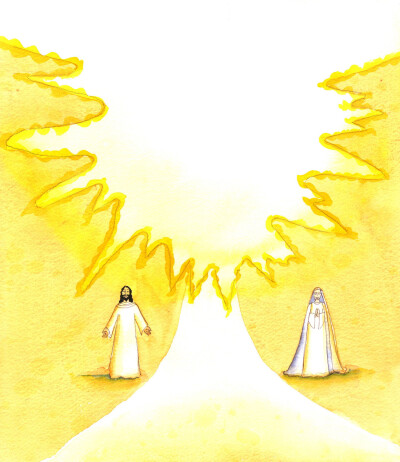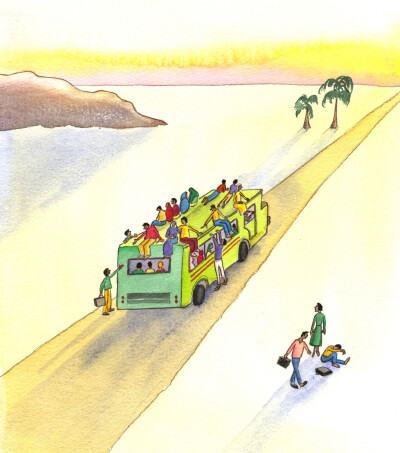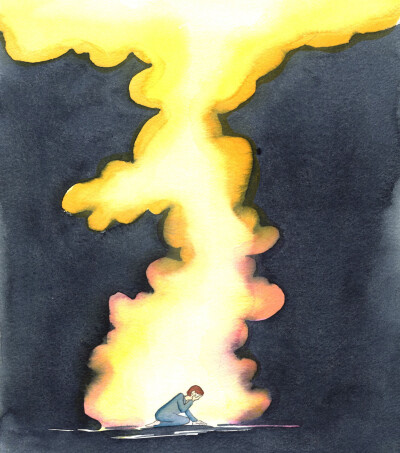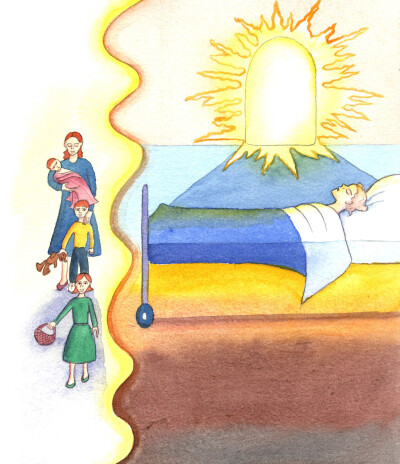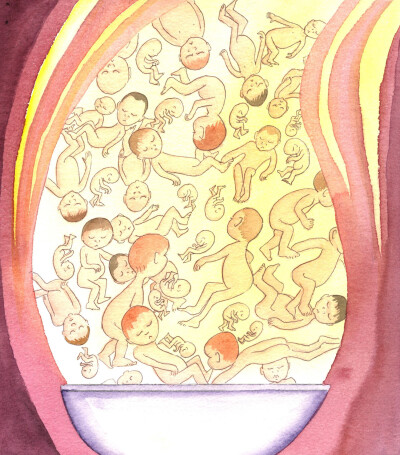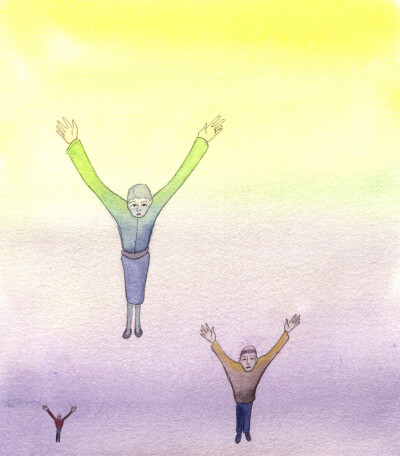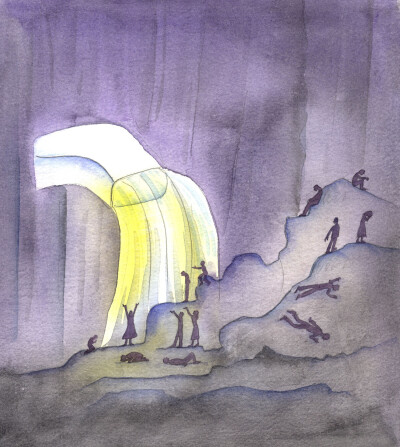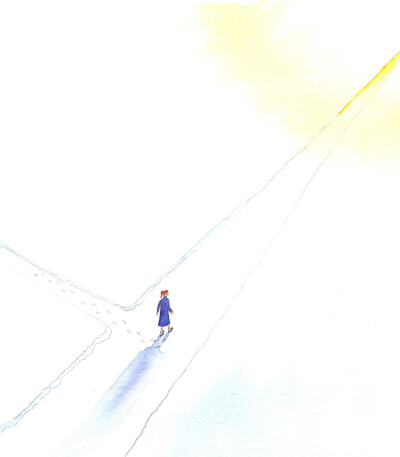Search Page
Showing 1141 - 1160 of 1250
By our Baptism we leap over a wall, it seems, that separates the holy from the unholy, no longer being stained by original sin. But the city beyond the wall represents earthly life, through which we should travel without being enslaved by sin. Heaven lies ahead, for the faithful, hence the importance of good preaching, as the clergy urge people not to grow weary, and never to betray Christ. Only the holy can enter Heaven.
Christ wants us to think carefully about 'environmentalism'. We are right to be concerned for people all over the world - to ensure clean water supplies, and reduced pollution, for example. It is a mistake, if we become concerned with the care of the planet almost to the point of excluding from our minds any interest in the state of our souls. The heart of the Gospel message concerns liberation from sin, and preparation for Eternal Life.
People endanger their souls by their involvement in the occult, in any of its forms, which include spiritualism, with its attempts to speak with or to 'call up' the spirits of the dead. To take part is to risk evil spirits entering the souls of the curious. Yet anyone who grows fearful should know that Christ's power is greater that the power of any creature - whether demonic or human.
Some Catholics choose not to believe in parts of the Church's moral teaching. They are as unwise, and as dangerous to others, as those medical students who might accept all that their professor teaches about physiology and medicine but who refuse to believe what he says about the importance of washing hands and preventing infection.
Christ is touched to the heart by our desire to celebrate His Birthday, at Christmas, and by our desire to share our joy in His love and goodness with other people, through cards and letters. It also strengthens bonds on the family, and society.
Even in infancy, Jesus Christ set an example of trust, as He entrusted Himself to the care of human beings, when He had 'left behind His glory' as the Son of God. He came amongst us on earth, even though He knew He would be mocked and rejected by many. We give Him joy when we turn to Him with gratitude and gladness.
The Eucharist, for Catholics, is a sign of unity, not a step to it. A faithful Catholic cannot take part in ill-defined, ambiguously-worded ecumenical events that confuse people about truth, and yet which are meant to increase communion between Christians. The Most Holy Eucharist, treasured by Catholics, is not to be confused with a sharing of merely bread and wine, as merely a social event.
It was as if from the 'womb' of the Godhead, from the heart of the Mystery of the Godhead, was born love, embodied, when Jesus Christ took flesh from the Blessed Virgin Mary. He came to earth to be our Saviour: to invite His beloved creatures to accept His free gift of salvation and joy.
Whoever wants to be at peace with Christ need only take a few simple steps to emerge from misery and isolation. We need only make a gentle confession, regretting our sins, but determined to stop sinning, and wanting to be freed by the graces of the sacrament. Then we can go to Mass and Holy Communion, knowing we have been made worthy to take part!
We must not hold on to a slavish fear of God. The second Person of the Blessed Trinity took flesh from the Blessed Virgin Mary, to be made man, able to suffer and die in earthly life, to save sinners. The gentle love in the heart of that Divine infant is the tender love at the heart of the Trinity.
Everything that happens on earth has been planned, permitted or chosen by God. Yet God's gift to everyone in His plan of salvation, and to everyone on earth, is freedom. Whoever serves Him does so having freely chosen to do so. God coerces no-one, not even the Mother of His own Son, Jesus Christ. If we look past the figures of Christ and Our Lady, to whom we pray so often, and approach the Invisible Father, we can remember: a wise person is one who chooses Life.
The Church is like a bus which takes grateful people through a desert. People on the bus have practical help, a little community, communal prayer, and hope of a safe arrival, whereas people who refuse to climb on, or who decide to leap off, will be making a perilous journey on foot, with no guide. What counts is being on board, even if we are uncomfortable or uncertain of our destination. The alternative is death. The 'bus' takes us towards Heaven.
Except in special circumstances, we can find that, if we open our hearts to God, even in difficulties which seem insufferable, we allow God to act in our lives and our souls, whether by unexpected changes, or simply by pouring upon us His comforting graces. As Jesus said: 'Come to Me if you are burdened, ...and I will give you rest'.
God is pleased to see people welcome children, to see the love for life in the hearts of many people on earth; He is also pleased to see that some of the faithful even have a 'love for death', in the sense that they have banished their fears, by His grace, and even long to go through death, as through a doorway, in order to meet the Lord, when He calls them 'home'.
No mother should fear for the future of her departed baby. God the Father loves every person He has created, including the very tiny and innocent infants who die unbaptised because they died through abortion, or miscarriage, or after birth but before Baptism could be administered - or when it was denied them by unbelieving parents. He cannot allow the innocent to suffer after death, for He is just; and so in some way they live eternally in His loving care: as if having fallen at death into a comfortable nursery cot.
We should not forget our departed friends and relations. The Holy Souls in Purgatory are safe in God's care, as their purification prepares them for the glory of Heaven; yet they yearn to benefit from our intercessary prayers. They are helped to move closer to Heaven, by our prayers for their souls, as we pray in the name of Christ, Who wants everyone to act, to help them.
We need to refocus our thoughts: on Heaven! Someone sad can gain a new perspective, by looking at a traditional scene, and realising that he or she enjoyed many more happy Christmasses than sad ones. What counts is to realise that in every season we are deeply loved by God, as precious individuals whom He wants to bring to enjoy eternal joy with Him.
God never leaves us alone on earth in our sins and miseries. He is constantly pouring out His graces upon us, calling us to be washed clean, and find refreshment and peace; it's as if people in earthly life live in a dark cave, when living water pours from a giant funnel. Some people immerse themselves and are transformed, others choose to remain filthy and parched.
We should follow the example of the holy Angels. When Christ comes to us in Holy Communion, or when we know He is Present in the tabernacle or on the altar, our attitude should be like that of the Angels, who adore Him profoundly, in His Divinity. He is worthy of their adoration, and ours. They never leave Him alone; and we, for our part, should always show Him reverence and love.
Some converts who entered the Church in the 1960s and 1970s found the Truths of the Faith, and the sacraments, and Christ Himself, Really Present. Yet they found themselves in an icy landscape; the ice and snow represent what Christ then saw: the icy hearts of those who were itching for inappropriate changes, and who, by strange acts and exaggerations, caused a thousand disasters, including, in part, a de-sacralisation of the words and gestures of the Mass.
Showing 1141 - 1160 of 1250


